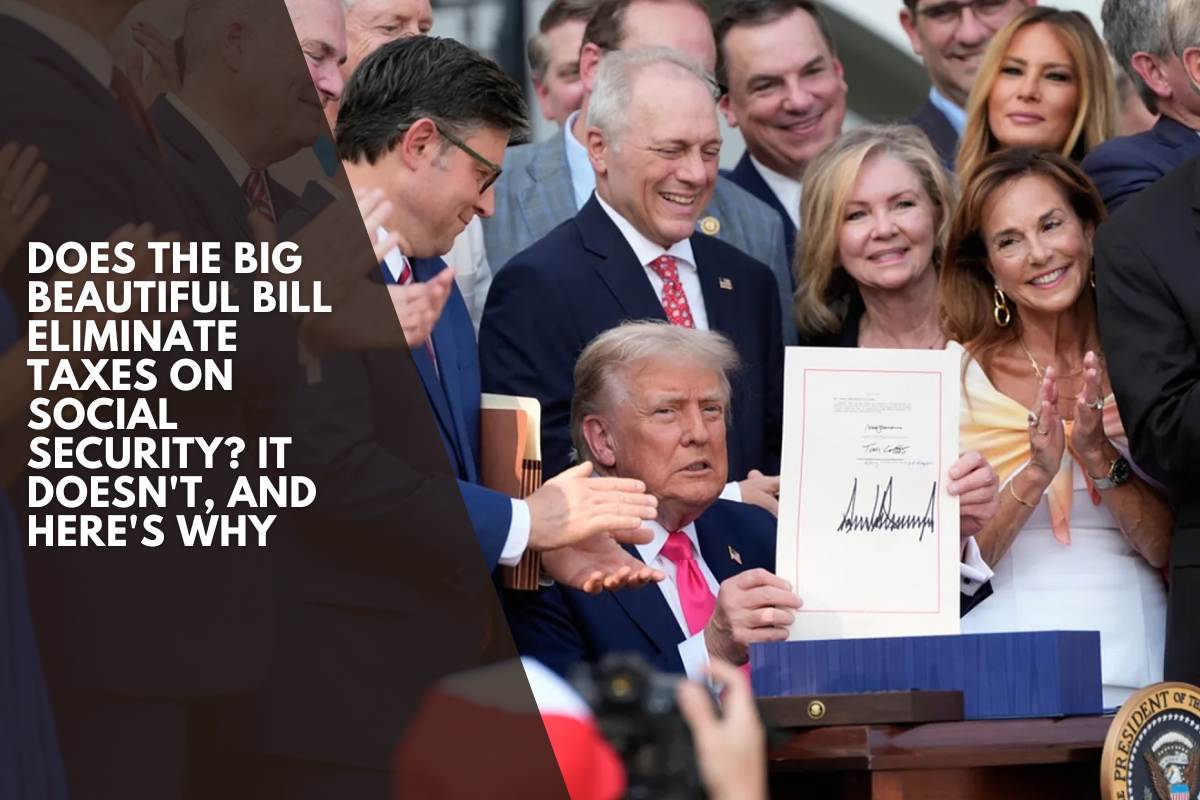One of the main promises of President Donald Trump’s One Big Beautiful Bill Act (OBBBA) was to eliminate taxes on Social Security benefits. However, as analysts examine the bill more closely, they discover a reality that differs significantly from what has been widely promoted.
Following Congress’s passage of the OBBBA, the Social Security Administration (SSA) stated that the legislation “eliminates federal income taxes on Social Security benefits for most beneficiaries.”
Furthermore, according to a June analysis by the White House Council of Economic Advisers, approximately 51.4 million people, or roughly 88% of beneficiaries, would no longer pay federal taxes on their Social Security income. However, more recent assessments reveal a different story.
What the “Big, Beautiful Bill” really does
According to independent analyses by the Tax Foundation and the Centre for American Progress (CAP), the bill does not eliminate taxes on Social Security benefits. Instead, it establishes a temporary deduction intended to reduce federal taxes for eligible seniors.
However, this deduction is not limited to Social Security recipients; it applies to all seniors and disproportionately benefits the oldest and wealthiest taxpayers.
Here’s a breakdown:
Seniors aged 65 and older with adjusted gross income up to $75,000 (or $150,000 for couples filing jointly) qualify for the deduction.
The benefit phases out for higher earners.
The deduction is only available until 2028.
Seniors under 65 don’t qualify at all.
Lower-income Social Security recipients gain nothing from it, since they were already exempt from federal taxation
Why true tax elimination was never an option
According to Bobby Kogan, a senior analyst at CAP, the Byrd Rule–an obscure but powerful budget constraint–makes it nearly impossible to use legislation like the OBBBA to permanently eliminate taxes on Social Security benefits.
The Tax Foundation echoed this in a June report, stating that the bill would not increase the after-tax income of the bottom 20% of American taxpayers. “Those taxpayers are already exempt from taxation on their Social Security benefits,” noted the report’s conclusion.
While the bill provides some seniors with limited tax relief, experts argue that it was primarily designed to pursue broader federal budget cuts rather than overhauling the way Social Security is taxed.












